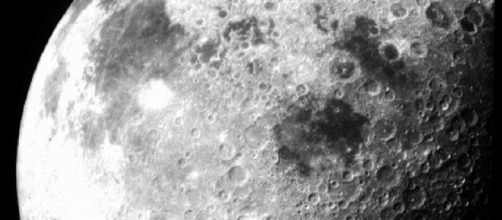Is Elon Musk scaling back his Mars ambitions just a little? As Wired notes, SpaceX’s recent announcement that it has abandoned, for the time being, adding a powered landing capability to the Dragon would seem to indicate that is the case. The Red Dragon would depend on that ability to land on Mars. Then, is Musk pivoting to the moon, a destination that he has hitherto shown little interest in? Musk hinted at the idea of a partnership between SpaceX and NASA for a return to the moon.
Riding a Falcon to the moon
SpaceX is already, in a sense, partnering for a return to the moon, but with other commercial and private space groups.
The Falcon 9 is the launch vehicle of choice for the Israeli team in the Google Lunar X Prize competition. While, because of a launch order backlog resulting from a pad explosion SpaceIL is unlikely to meet the deadline of the end of 2017, it still intends to shoot for the moon, likely in early 2017, using the SpaceX workhorse launch vehicle.
Musk has also announced that he plans to send two paying customers around the moon in a specially outfitted Dragon launched on a Falcon Heavy as early as 2018. This mission largely depends on getting the Falcon Heavy operational. Musk recently suggested that the first launch of his heavy lift rocket due to take place later in 2017 might not go as planned.
He could be playing the expectations game. On the other hand, a rocket that fires 27 engines at once will be a formidable achievement.
A commercial partnership with NASA
The Trump administration has made no secret of its ambitions to return to the moon and to do it with commercial partnerships. Musk, seeing the handwriting on the wall, is doing what any good businessman does and is aligning his company with the interests of the United States government, his primary customer. SpaceX has already developed a good relationship with NASA, conveying cargo to and from the International Space Station and, next year, astronauts. Extending that partnership to the moon will not be too great a stretch.
Commercial competition to the moon
Musk is also aware that his primary business rival, Jeff Bezos’ Blue Origin, has been very open about its lunar ambitions. It would certainly not do for Blue Moon, as Bezos calls his lunar effort, to be delivering cargo and astronauts to the lunar surface without SpaceX there as well. The new race to the moon involves multiple countries and companies. Elon Musk has no intention to be left behind.


